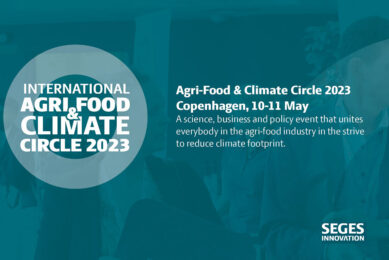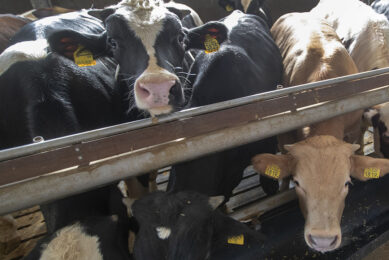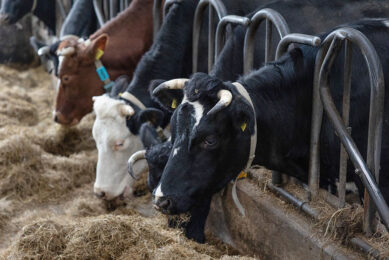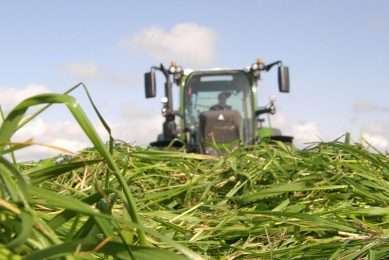Linseed in cattle diet reduces belching
Feeding cattle linseed can reduce the amount of methane by up to 40%, according to studies presented at the British Society of Animal Science annual conference.
The linseed encourages the growth of good bacteria in the cow’s stomach whilst rejecting the type of bacteria that produces methane.
More than 100 dairy farms with 30,000 cows which produce milk and cheese for major retailers are already adding linseed to cattle feed as part of a industry-wide plan to bring down emissions from cows.
Linseed produced in the UK can also help farmers reduce dependency on imported feed like soy or wheat, that is going up in price.
Amanda Ball from dairy farming organisation DairyCo said more farmers are expected to use linseed in future to bring down emissions and boost the health of cows.
“Dairy farmers are facing rising feed costs and it is very encouraging to see them use innovative solutions that help them achieve the highest standards of welfare in a modern and sustainable way. We know that feeding cows more efficiently can help reduce methane emissions and this is a great example of farmers putting that knowledge into practice."
The UK Government has committed to cutting greenhouse gases by 80% by 2050, including the emissions from agriculture.
Diet change also effective
Researchers at Reading University and the Institute of Biological, Environmental and Rural Sciences found that dairy cows could emit 20% less methane for every litre of milk if fed crushed rapeseed.
Increasing the proportion of maize silage in cows’ diets from 25% to 75% could reduce methane emission by 6% per litre of milk, while high-sugar grasses could reduce an animal’s methane emissions by 20% for every kilo of weight gain.
And a diet including a particular variety of oat could cut sheep’s methane emissions by a third, the researchers said.











